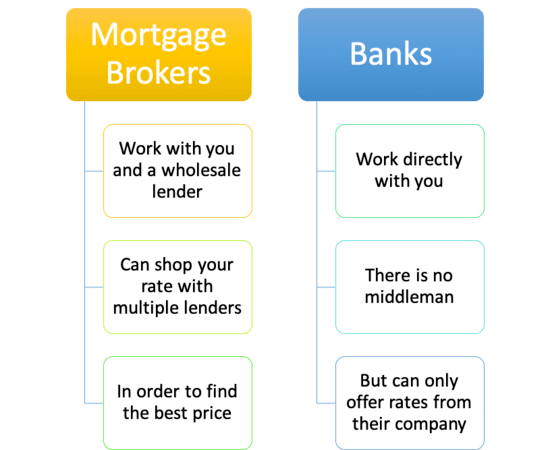Understanding What a Jumbo Lending Entails and Exactly How It Differs From Traditional Finances
Navigating the details of jumbo finances reveals a financing option tailored for those venturing right into high-value realty, generally surpassing the limits established by the Federal Housing Financing Company. In contrast, traditional fundings are typically extra accessible, profiting from support by entities such as Fannie Mae and Freddie Mac. The considerable danger associated with jumbo fundings necessitates extra rigid qualification demands, consisting of higher credit ratings and significant deposits. As these 2 lending types deal with differing monetary landscapes, recognizing their subtleties is vital for making notified decisions in the intricate globe of realty funding. Exactly how do you figure out which course ideal fits your economic approach?
Meaning of Jumbo Financings
Jumbo lendings are a kind of home loan that go beyond the adapting funding limitations established by the Federal Housing Finance Firm (FHFA) These lendings accommodate debtors that require to fund homes that are more pricey than what traditional funding restrictions enable. The FHFA develops annual adapting financing limits, and any finance exceeding these limits is categorized as a big finance.
Normally, jumbo fundings are used in high-cost genuine estate markets where home prices considerably surpass nationwide standards, such as in cities or high-end housing fields. As these financings are not qualified for purchase by Fannie Mae or Freddie Mac, they carry fundamental risks for loan providers due to their larger size and non-conformity (jumbo loan). Consequently, loan providers frequently enforce a lot more strict qualification standards for jumbo lendings than typical conforming fundings.
Consumers looking for jumbo loans need to typically show a strong monetary profile, including a greater credit rating, durable income verification, and significant deposit, commonly 20% or even more. In addition, loan providers may require a lot more comprehensive paperwork to evaluate the consumer's ability to manage larger month-to-month settlements. Understanding the particular characteristics of big finances is important for potential debtors navigating this sector of the mortgage market.
Conventional Fundings Overview
While big car loans deal with high-value residential or commercial property financing, traditional loans represent the more typical home mortgage alternative in the housing market. These financings are not guaranteed or guaranteed by any federal government entity, such as the Federal Housing Administration (FHA) or the Division of Veterans Affairs (VA) Rather, they are backed by personal lenders and stick to standards established by government-sponsored enterprises (GSEs) like Fannie Mae and Freddie Mac.
Conventional car loans are typically provided with repaired or adjustable rate of interest prices and vary in terms of duration, frequently spanning 15 to thirty years. Debtors typically prefer traditional finances for their predictable monthly payments, which can promote long-lasting monetary preparation. In addition, they are offered for primary houses, 2nd homes, and investment buildings, using flexibility to meet diverse borrower demands.

Secret Distinctions In Between Loans
At the center of this decision-making procedure are jumbo car loans and conventional lendings, each having distinctive attributes and serving various debtor needs. Big finances surpass the adhering lending restrictions established by the Federal Real Estate Financing Agency (FHFA), which differ by region.

In addition, the down payment demands can vary considerably. Big lendings typically call for bigger deposits, hop over to here in some cases surpassing 20%, to alleviate risk. Conventional fundings, on the other hand, might permit reduced deposits, with some programs approving just 3% for qualified customers.
Credentials Needs
Securing a jumbo loan involves meeting extra rigorous credentials needs contrasted to traditional financings, reflecting the raised threat to loan providers. These financings, which surpass the adapting funding limitations set by the Federal Real Estate Financing Company (FHFA), are not eligible for acquisition by Freddie Mac or Fannie Mae, therefore revealing loan providers to higher monetary risk - jumbo loan. As an outcome, debtors should show a high credit reliability and monetary security
A durable credit rating, typically 700 or greater, is vital for approval. Lenders also anticipate a lower debt-to-income (DTI) proportion, typically not exceeding 43%, making certain that debtors can manage considerable regular monthly settlements along with other financial responsibilities. A significant cash money reserve is normally required, typically amounting to six months of home loan payments, to assure lending institutions of the try this web-site consumer's monetary strength.
Deposit assumptions are also raised, frequently starting at 20% or even more of the home's worth. While this is a guard for loan providers, it demands considerable in advance funding from consumers. In addition, evidence of constant, sufficient earnings is crucial, usually verified with income tax return, W-2s, and recent pay stubs. Freelance people might require to give further paperwork, such as revenue and loss declarations, to corroborate their revenue security.
Choosing the Right Car Loan
Navigating the complexity of jumbo car loans requires careful factor to consider when choosing the most suitable loan alternative. With the wider variety of options readily available to those seeking jumbo loans, the decision-making procedure ought to involve a thorough evaluation of one's financial profile and long-term objectives. Unlike traditional lendings, big finances typically come with more stringent requirements and differed rate of interest, which require thorough research study and a clear understanding of one's monetary standing.
When picking between various jumbo lending offerings, it is vital to evaluate the finance terms, including rate of interest, settlement schedules, and connected costs. Customers need to compare the prices given by different lending institutions to ensure they protect one of the most beneficial terms. In addition, understanding the effects of fixed versus adjustable-rate home loans (ARMs) is essential, as each alternative presents unique benefits and risks depending go to this site on market problems and individual economic approaches.
Engaging with a monetary expert or mortgage broker can supply beneficial understandings tailored to private scenarios. These specialists can assist in navigating the nuances of jumbo loans, making sure that consumers are educated and equipped to select a financing that aligns with their financial objectives, ultimately helping with a smoother home-buying procedure.
Verdict
In recap, big loans function as an economic tool for getting high-value residential properties, demanding rigorous qualification needs and greater rate of interest rates because of the elevated risk for lenders. Unlike traditional finances, which adjust to FHFA limitations and may receive backing from Fannie Mae or Freddie Mac, big financings call for a minimal credit rating of 700 and substantial deposits. Comprehending these distinctions is crucial for borrowers in high-cost realty markets to establish one of the most appropriate lending option for their demands.
The FHFA establishes annual adjusting financing limitations, and any loan going beyond these limits is categorized as a big finance.
At the leading edge of this decision-making process are traditional lendings and big fundings, each possessing distinct qualities and offering different debtor requirements.Securing a jumbo lending includes satisfying extra rigid credentials demands contrasted to traditional lendings, mirroring the increased danger to lending institutions. Unlike traditional financings, jumbo financings frequently come with more stringent requirements and varied rate of interest prices, which require detailed research and a clear understanding of one's monetary standing.
Unlike standard car loans, which adapt to FHFA restrictions and may get support from Fannie Mae or Freddie Mac, big lendings need a minimal credit scores rating of 700 and substantial down settlements.